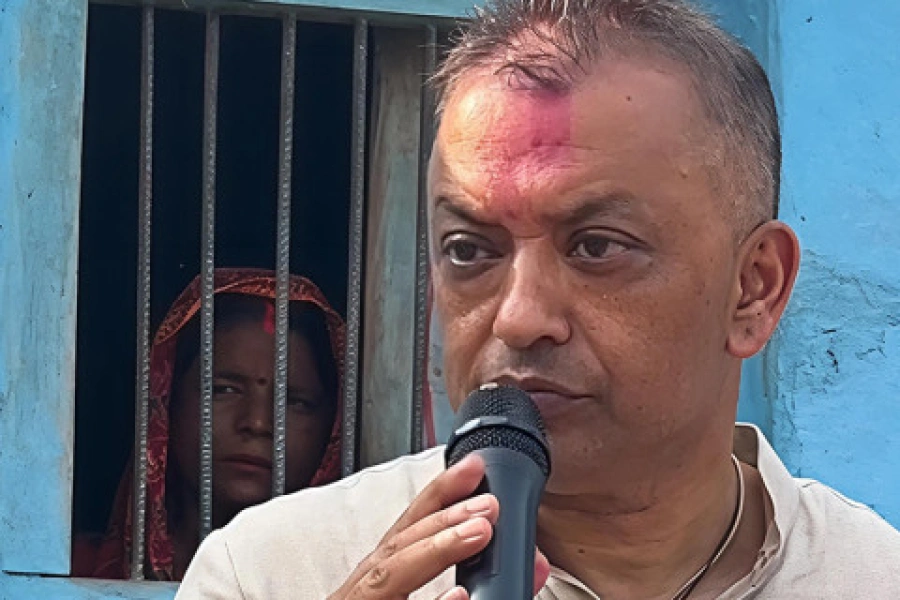The government, civil society and religious leaders should step up to stop barbaric animal sacrifice in Gadhimai in the name of religion or God
Controversial Gadhimai festival is at the doorstep. The event, which is observed once in every five years, drew worldwide attention in 2014 because of mass sacrifice of thousands of animals on a single occasion. Thanks to digital age, heart touching barbaric scene from the sacrifice spot spread like wildfire all over the world. That news not only shamed Nepal in the international arena but also blemished Hinduism’s reputation as barbaric religion. Animal rights activists immediately filed the petition asking to stop the practice and the court gave its verdict in 2016 to stop the mass animal sacrifice in Gadhimai.
After the court order, concerned parties had agreed to stop the practice from this year’s festival. But rumors are in the air that the religious leaders of the temple have retracted from their promises and want to continue the practice citing that stopping the practice means external invasion to their culture.
Even though it is expected that the number of animals which will be sacrificed in this year’s event will be decreased, total ban of the animal sacrifice does not seem to be palpable.
Non-violence rally against animal sacrifice

As in many other Shakti Pithas, animal sacrifice in Gadhimai is not a different practice. The only minor difference is mass sacrifice of animals in single occasion. There are several legends about how all this started in Gadhimai. According to one of many legends, an old man dreamt of Goddess Ghadimai asking him to offer five drops of his own blood in the temple of Gadhimai so that he will be blessed by the Goddess and will never suffer any difficulties in his life. The Goddess also instructed him when and how to offer his blood in the temple. The old man did exactly as Goddess had instructed in his dream and miraculously or coincidently his life became better. After that, people started offering their own blood in the temple and over time the tradition of offering own blood transformed to the animal sacrifice. The practice became more and more popular and grew in leaps and bounds in recent years. Many pilgrims from Nepal and India started visiting the temple on this occasion for the animal sacrifice to fulfill their wishes.
As its popularity, the festival is also notorious because of mass killing of the innocent animals in the name of God and religion. Among the opponents of the event, there are several eastern scholars who define Hinduism as a peaceful religion and Ahinsa is one of the main ideologies of Hinduism.
If we look back the history of animal sacrifice, we find that, except few exceptions, in almost all major religions, animal sacrifice in many different forms is part of religious practice. But in recent years, animal sacrifice is decreasing and, in many religions but Hinduism, the practice is completely ceased to exist. The defenders of animal sacrifice in Hinduism quote the proof from Hindu sacred test Yajurveda.
It is notable here that most of the religious texts including those in Vedas, Bible and Quran, are written in anecdotes and metaphors and those anecdotes can be interpreted to one’s liking. The true meaning of most of the religious texts is unfathomable for common people. So, people tend to interpret those scripts as per their wish and benefits. Hence, the animal sacrifice script written in Yajurveda might have different meaning and not directly indicating animal sacrifice.
Yajurveda’s 22 to 25 sections contain hymns about the animal sacrifice. Rigveda has also mentioned about horse sacrifice once. Except that no other major Hindu scripts have mentioned animal sacrifice. So, it is debatable whether animal sacrifice is ratified by Hinduism. Many scholars from east and west argue that the sacrifice written in Yajurveda actually means sacrifice of our lust, wrath, greed, gluttony, envy and pride.
In another aspect, if we are all God’s creations, how will God be happy if some of his smart ‘kids’ kill their own siblings? So, it is total misinterpretation of animal sacrifice in the name of God.
When we talk about stopping animal sacrifice, another topic immediately comes into mind: What about the millions of animals and birds that are killed every day for commercial purpose?
Definitely, it is also another example of human cruelty and it will be better if we can stop all those killings completely. But it is noteworthy that in commercial killing of the animals, there is not God in between. All those killers are willing to bear the sin of killing. But in the animal sacrifice, we are involving God and not taking blame for the sin we have committed which is totally wrong.
Hence, government, civil society and all religious leaders should step up to stop barbaric animal sacrifice in the name of any religion or God. Let us hope that this year’s event will see no blood stains in the sacred temple of Goddess Gadhimai.
The author is based in Shanghai and writes about Nepal’s social and political issues





























-1200x560-1771928761.webp)









